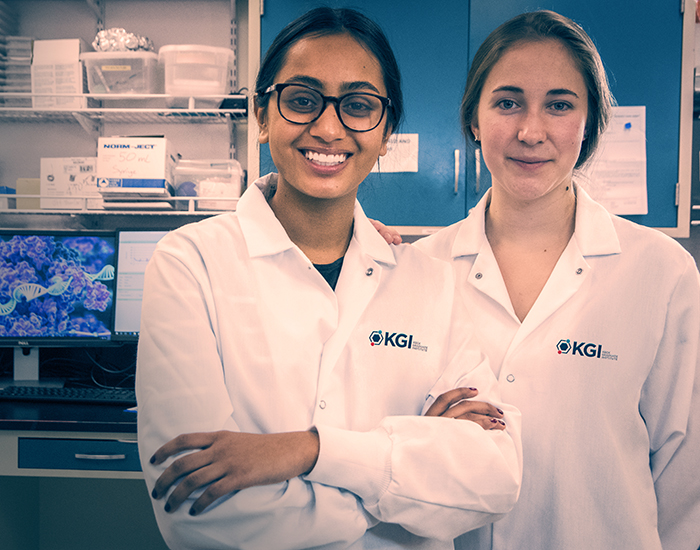Students in biology study the molecular structure, genetics, behavior, ecology, and the evolution of living organisms. Those organisms include anything that metabolizes and reproduces from viruses to plants, insects, animals, and humans. Biology is a stand-alone area of study with many possible specializations. Still, it is also an area of study that is frequently combined with other fields both in academia and industry. Combinations that one often sees in biology studies and post-graduate work and research include biotechnology, biochemistry, biomedical science, environmental biology, and biophysics.
What types of biology programs are available?
Students can take Associate’s, Bachelor’s, and Master’s degrees in Biology and can also obtain a PhD in biology. A Bachelor of Science degree in Biology would include those courses, plus additional courses like molecular biology and botany, as well as research, laboratory, and general education courses.
Students completing a Master’s Degree in Biology typically choose a specialization or concentration after completing core courses. They study molecules and cells, neurobiology, microbiology, genetics, and research techniques. Typical specialties include genetic engineering, cellular biology, biochemistry, wildlife biology, zoology, botany, medical microbiology, immunology, toxicology, and molecular biology. Master’s level studies generally include a research proposal and the oral defense of a written thesis.
Students interested in undertaking original research while developing expertise may pursue a doctoral degree after completing a Master’s. Candidates for a PhD in Biology, complete courses in molecular evolution, biodiversity, conservation biology, genomic evolution, and restoration ecology, during their PhD. program that will also include a research proposal, research, dissertation, and an oral defense.
Graduates with a biology degree
In 2018, 1,900,000 students in the United States graduated with Bachelor’s degrees. Those graduates included 118,663 graduates with biological and biomedical science degrees. In the same year, 820,102 students achieved Master’s degrees, including 17,180 Master’s degrees in biological and biomedical sciences. Nearly 9,000 students graduated with PhD degrees in biological and biomedical science degrees in 2015. It was the most common subject area of doctorate research. Just over 55,000 PhD degrees were granted in the United States in 2018.
What do biology graduates do with their degrees?
As can be seen from available data about graduates with biology-related degrees, many biology graduates remain in academia to pursue Master’s and Doctorate-level degrees while conducting and supervising research and teaching. The employment market for graduates with Biology-related degrees is expanding. In 2018, there were approximately 2,730,000 people in the United States workforces with Biology degrees, an increase of 3.9% over 2017.
The top 10 careers where biology graduates were working in 2018, together with the number of people working in those fields and their average salary were:
|
Top 10 Career Options for Biology Graduates |
||
|
Career |
Percentage of Grads |
Average Earnings |
|
Physicians |
15.2% |
$240,484 |
|
Post-Secondary Teachers |
4.53% |
$79,174 |
|
Managers |
3.24% |
$116,346 |
|
Elementary and Middle School teachers |
3.1% |
$50,400 |
|
Physical scientists |
3.07% |
$80,247 |
|
Registered nurses |
2.81% |
$71,627 |
|
Dentists |
2.72% |
$193,730 |
|
Pharmacists |
2.25% |
$108,131 |
|
Medical scientists |
2% |
$90,847 |
|
Clinical laboratory technologists and technicians |
1.99% |
$55,375 |
Many students interested in careers in many of these challenging and prestigious STEM- and biology-related careers pursue and obtain their advanced and highly competitive degrees from Keck Graduate Institute (KGI). To learn more information about how to stand out as a superior candidate for your future career among a growing pool of Biology graduates, explore KGI’s programs, and get in touch.
